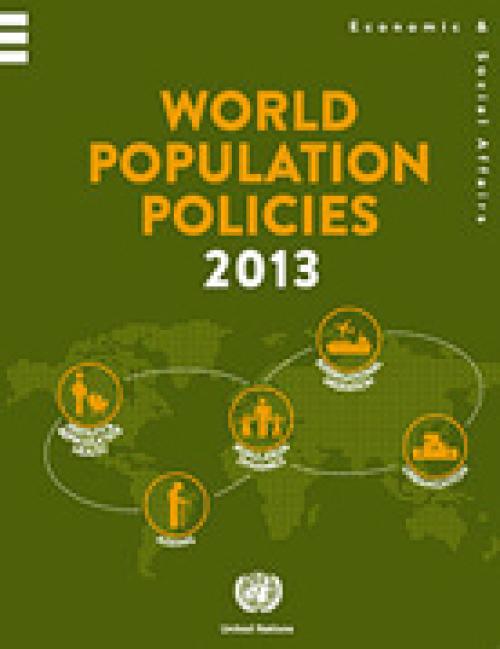
World Population Policies 2013 report is part of a series that provides comprehensive and up-to-date available information on the population policy situations and trends for all 193 Member States, two Observer States and two non-member States of the United Nations. The publication documents changes in Government views and policies from 1976 to 2013 with respect to population size and growth, age structure, fertility, reproductive health and family planning, health and mortality, spatial distribution and internal migration, and international migration within the context of demographic, social and economic change.
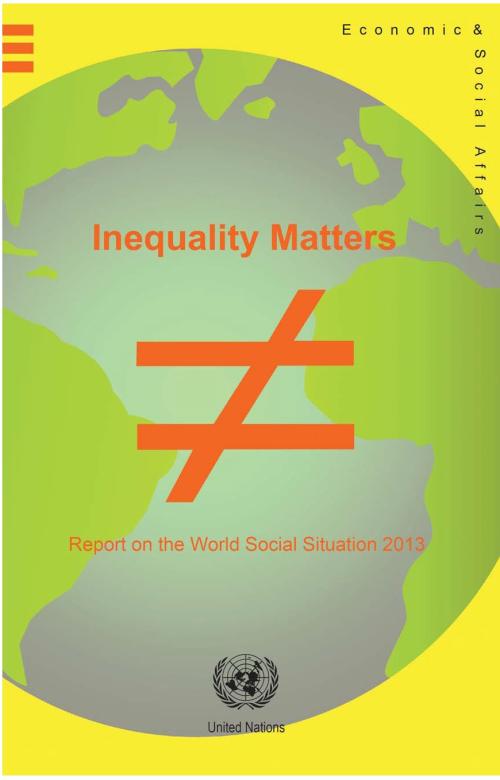
The 2013 Report on World Social Situation: Inequality Matters brings attention to inequality, with a particular focus on policies and the disadvantaged social groups. Tracing the recent trends and the consequences of inequality, the Report shows that inequality matters not only for people living in poverty, but also for the overall wellbeing of society at large.
The Report further demonstrates that growing inequality is neither destiny nor a necessary price to pay for economic growth. It explains the consequences of high inequality and further examines the experience of some countries that have defied the general trend and have managed to reduce inequality, showing that…
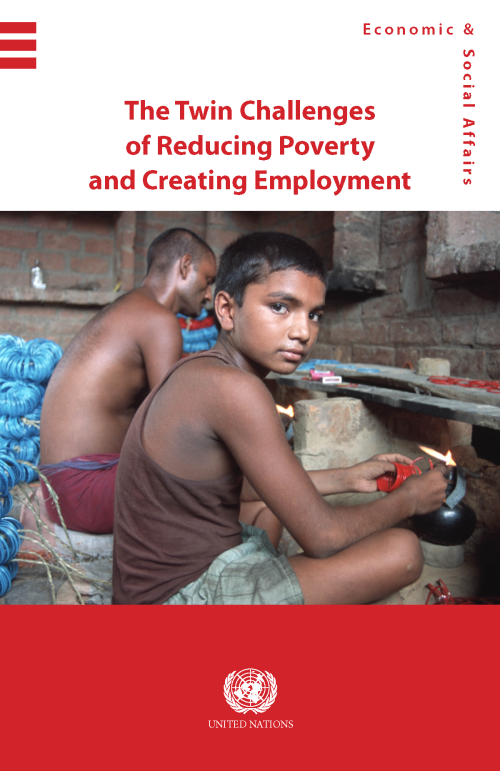
This E-publication is based on papers presented at two Expert Group Meetings (jointly organized by DSPD and the ILO) that brought together specialists to undertake a review of progress in eradicating poverty and to analyse policy responses to the global jobs crisis in different countries and regions of the world. It calls for a reorientation of macroeconomic policies from the current heavy emphasis on short-term stability to the promotion of sustained, inclusive and equitable growth. It stresses the need for the integration of social and economic policies to enable the attainment of people-centred development outcomes.
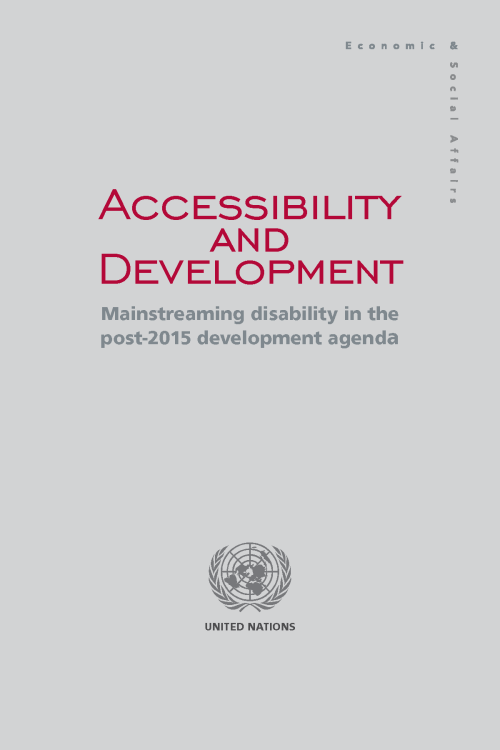
The publication reviews the concept of accessibility and its role in achieving inclusive and sustainable development. It propositions that accessibility be, not only a means and a goal of inclusive development, but also an enabler of an improved, participative economic and social environment for all members of society, including persons with disabilities.
Three key issues are addressed in the publication: (1) Accessibility in the context of human rights and development; (2) accessibility in policy and practice; and (3) accessibility and a disability-inclusive post-2015 development agenda.
The publication reviews good practices and lessons learned from both top-down and…
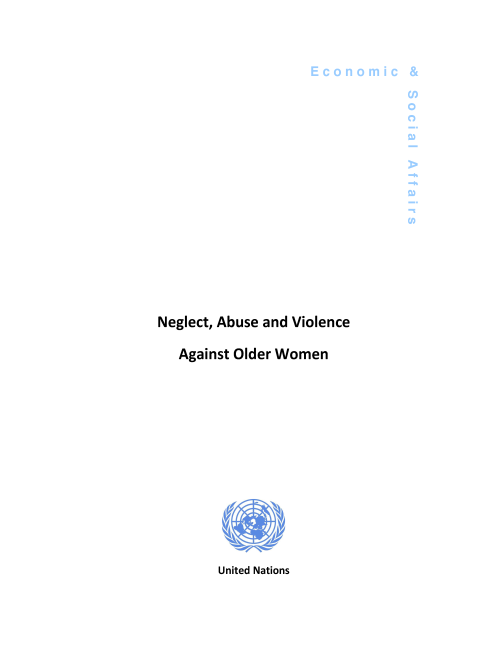
The objective of the Madrid International Plan of Action on Ageing (MIPAA) was the elimination of all forms of neglect, abuse and violence against older persons (MIPAA, 2002).
The United Nations Department of Economic and Social Affairs (UN-DESA), together with its focal point on ageing in the Division for Social Policy and Development (DSPD), began a discussion based on current research, available data and the terminology used in academic circles to describe and classify violence and abuse against older women. The majority of academic research and discourse has been conducted in developed countries, and agreement on terminology and meanings has—by no means—been clear or agreed.…
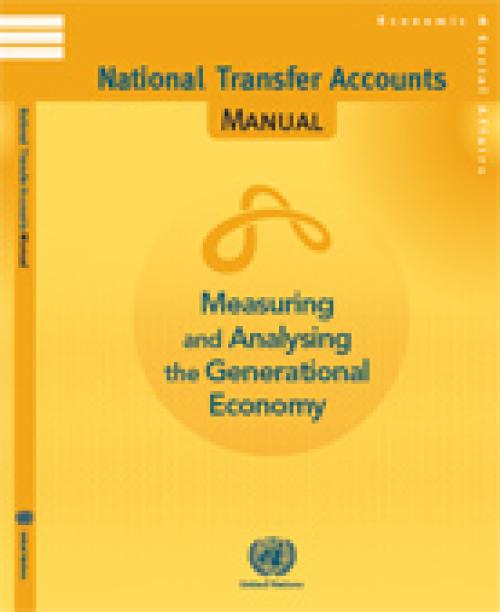
The publication provides a coherent accounting framework of economic flows from one age group or generation to another, typically for a national population in a given calendar year. This manual presents the concepts, methods and estimation procedures to measure these flows over the life-cycle. The NTA estimates are useful to understand and analyse the implications of changing age structures for the fiscal sustainability of social programs, the accumulation of physical and human capital, economic growth, and familial support for children, youth and older persons.
National Transfer Accounts are consistent with the System of National Accounts (SNA), and provide measures by single…
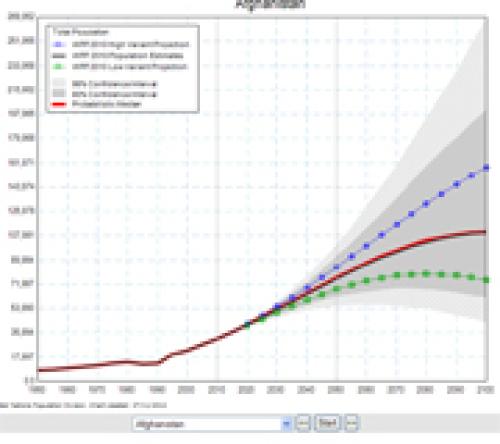
The current world population of 7.2 billion is projected to increase by 1 billion over the next 12 years and reach 9.6 billion by 2050, according to a United Nations report launched today, which points out that growth will be mainly in developing countries, with more than half in Africa.
“Although population growth has slowed for the world as a whole, this report reminds us that some developing countries, especially in Africa, are still growing rapidly,” said the Under-Secretary-General for Economic and Social Affairs, Wu Hongbo in a press release on the report.
The report, World Population Prospects: the 2012 Revision, notes that the population of developed regions will…
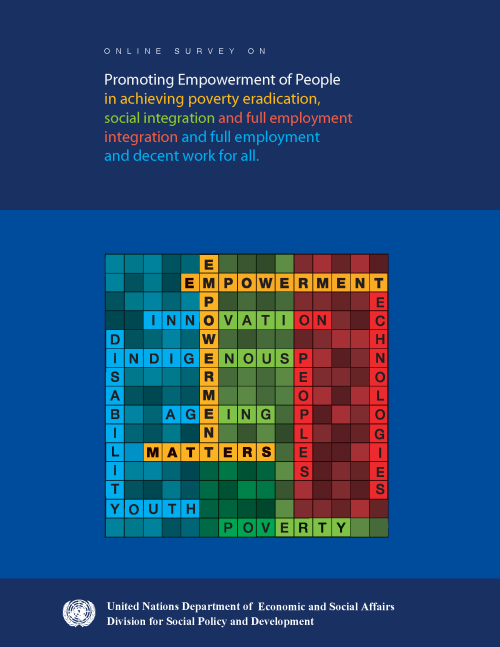
UNDESA-DSPD, from 8 August to 5 September 2012, conducted a global online survey to gather inputs for consideration by the 51st session of the Commission for Social Development (CSocD), which took place from 6 to 15 February 2013.
The survey enabled the public worldwide to respond to a set of questions that were related to the priority theme of CSocD on “Promoting empowerment of people in achieving poverty eradication, social integration and full employment and decent work for all”.
The responses collected and selected from the first question “Empowerment: What does it mean to you?” was published in a separate booklet.
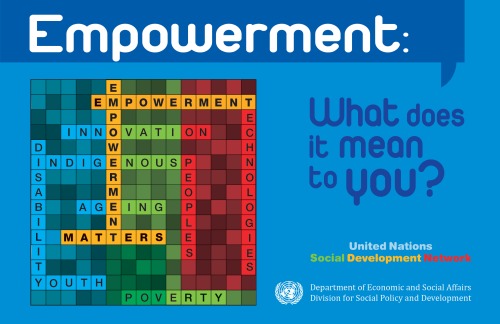
The “Definitions of Empowerment” represents a collaborative effort, made possible by the answers received from people all over the world on the Empowerment theme. Their invaluable contributions were essential for the preparation of the Empowerment Publication.
In order to collect people’s ideas and experiences, the Division for Social Policy and Development (DSPD) of UNDESA launched an on-line survey on “Promoting Empowerment of People”.
We were glad to receive tens and tens of responses from young individuals, persons with disabilities, older persons, and people working for various institutions and organizations committed to social development issues. Their keen interest…
“The increasing role of e-government in promoting inclusive and participatory development has gone hand-in-hand with the growing demands for transparency and accountability in all regions of the world,” said Sha Zukang, UN DESA Under-Secretary-General in the newly released United Nations E-government Survey 2012.
The survey, prepared by UN DESA’s Division for Public Administration and Development Management, assesses Member States’ government web portals with a focus on the provision of e-information and e-services; these services include interactive, transactional, and e-participation features that connect governments and citizens.
Member States are ranked in accordance…
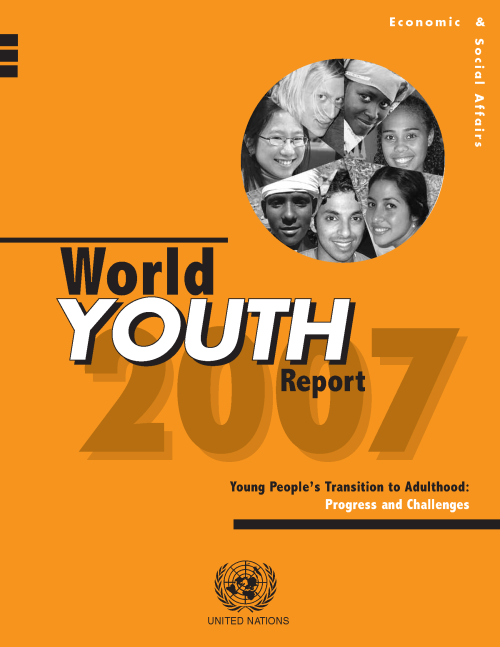
The World Youth Report 2007 examines the challenges and opportunities existing for the roughly 1.2 billion young people between the ages of 15 and 24 in the world. Distinct from the 2003 and 2005 editions, it provides a regional overview summarizing the major youth development trends in the fifteen priority areas of the World Programme of Action for Youth.
The report explores major issues of concern to youth development, including employment, education, health, poverty and violence. At the same time, it highlights youth as a positive force for development and provides recommendations for supporting their essential contributions.
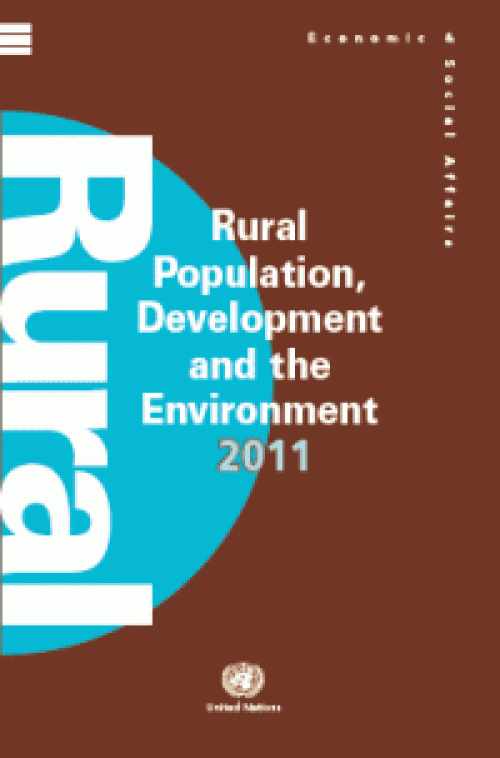
UN Population Division's wall chart on Rural Population, Development and the Environment 2011 presents the latest data available for 15 indicators of rural population, land use, development and environment. It provides estimates at the national, regional and world levels, giving us a better understanding of the relationship between demographic dynamics, natural resources and cultural practices.
 Welcome to the United Nations
Welcome to the United Nations